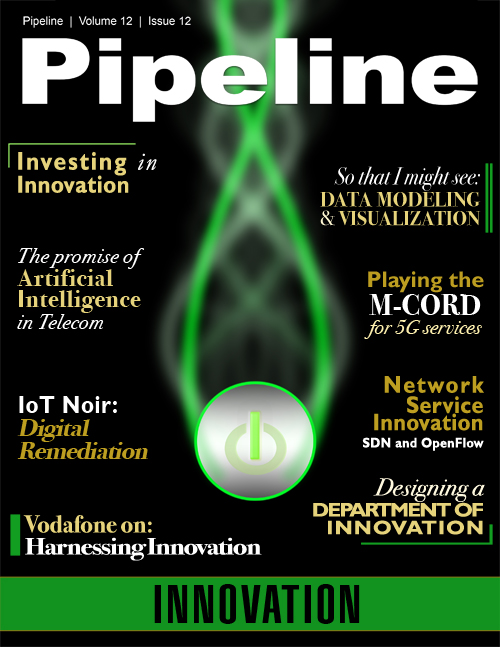The Promise of Artificial Intelligence in Telecom
How Machines Can Learn Things Humans Can’t
How do we go about teaching these systems about those patterns and what to do with them? What Paul Werbos and his colleagues are teaching us is that we don’t, and that brings us to the heart of what real AI is going to be about. We don’t teach the systems about patterns and actions. We devise systems that are able to learn about patterns and actions, with a little training from us.
For several reasons, the game of Go is a bellwether for progress in AI. It’s easy to learn how to play Go. It is fiendishly difficult to play well and much more difficult for any computer to play by brute force calculation. The AI star in the world of Go is AlphaGo, built by Google Deep Mind.
In May 2014, Wired magazine published an article titled,“The Mystery of Go, The Ancient Game that Computers Still Can’t Win.” Less than two years later, Wired published a further article announcing that AlphaGo had in fact won against a champion human player.
This is a big deal. The impressive thing about the AlphaGo project is this: at one point, the human handlers realized that AlphaGo had created a new way of playing the game. A way that humans hadn’t found in over 5,000 years of playing Go with each other. A way that enabled the machine to convincingly beat the human by four games to one in the series. AlphaGo is such a strong player, that its human opponents claim that playing the machine makes them better players.
It’s All A Game, Even Telecom
Why does this matter in the world of telecom? Some aspects of running global telecom networks and customer interactions mirror the challenges of playing Go: predicting all future states by pure computation is hard work, and in any reasonable sized network it is, in practice, impossible with today’s technology. Even if we could calculate those multiple future states, defining preventive or remedial actions based on those probabilistic calculations is a task of even greater magnitude.
Using traditional “process” based machines, we often fall back on the tried and tested methodology of waiting for something to go wrong, then fixing it. Or we use brute force for predictive analysis, which is good, but not necessarily scalable. So often we just gather statistics about what went wrong and put in place better gear that’s more reliable. We’ve done that for over 100 years, and we are still doing it much the same way, except with computer assistance, which at least makes the statistical analysis less burdensome.
However, if we treat network management and customer experience management as a big “game” in which an intelligent machine “plays” the network, then we have opportunities to address the challenge with a different mindset, not to mention a different machine-mindset. Networks are susceptible to entropy: left to themselves they will quietly and gently fall apart and die. A machine that has learned to recognize patterns of decay and to address them, is taking action to prevent failures.
A long time ago, people were aware of a certain quality of mind-body interaction: a healthy mind in a healthy body. [Or as Juvenal originally wrote it, mens sana in corpore sano.) For this service management AI, the network is its body. Just as AlphaGo seemed to eventually acquire at least the appearance of a kind of creative insight, the AI mouse mind of our future networks will acquire at least the appearance of a machine willing to keep itself healthy, in both mind and body. Just as AlphaGo wins games and in the process makes its opponents better players, the AI mouse mind of our future networks will arrest network decay, and customer unhappiness, and make our network services perform better.
Like AlphaGo, the AI mouse mind in our future networks will ultimately do those things in ways that might be somewhat unfathomable to us human beings, but that will be OK. Humans will design the
machines and start them on the learning process. And we can, and will, define what it means to “win” the game.



















